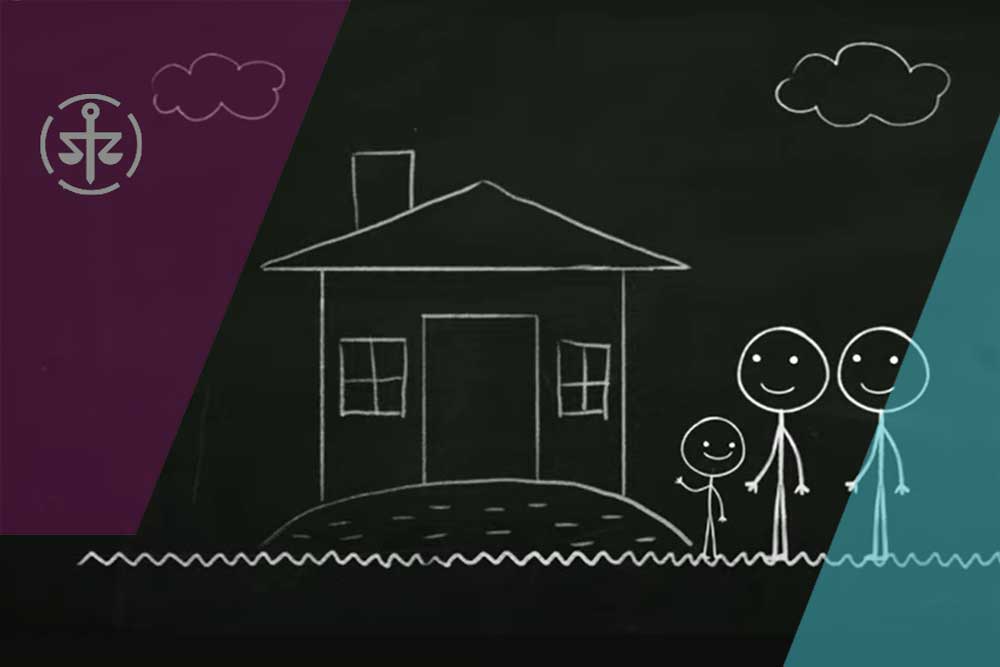Dealing with your children if you divorce
Resolution is a membership organisation briging together a range of professionals working in family justice; they aim to resolve breakup scenarios in a constructive, non-confrontational way.
They have released this video as a basic guide to dealing with your co-parenting issues if you stop living together.
More than 200,000 British couples divorce every year, and at least half of these breakups involve children. It seems that people are increasingly unlikely to stay together “for the sake of the children”, and are more likely to split up for the sake of children’s mental health.
Resolution’s Parenting After Parting Committee has produced a guide for parents going through separation or divorce. It covers a range of scenarios in a non-judgemental way.
You can download the Resolution guide here: https://resolution.org.uk/parenting-through-separation.
The effects of a breakup on children
Children are rarely to blame for a divorce, but they tend to suffer the most from it. How parents behave will have a lifelong effect on the child, resulting in hurt, anger, and even guilt.
It’s never going to be an easy journey, but if you do get it right your behaviour can have lasting benefits for your entire family, not just your children.
According to Resolution, “children cope well if there is no long-term parental conflict”.
Putting Children First Starts With Communication
Talk to your children, tell them about the situation, but don’t overwhelm them. Try not to communicate through your children, remember you may be setting yourself up as a role model, and you should be able to look back and be proud of the way you dealt with your breakup.
Use local resources if you can, for help with mediation or coaching in parenting. It is such an important issue that there are a number of well-funded charities and departments ready to help – there are addresses and ideas in the Parenting After Parting guide.
Show A United Front
You should tell your children about the breakup together. Discuss schools, homes, changes in their routine. Be honest, be realistic, and really try not to fight and argue in front of the children.
Whenever possible, have rational discussions where no-one tries to score petty victories.
It may help to write down what you want to say first when planning discussions with your co-parent – and of course do try to think of the other as your co-parent, instead of your ex.
Try to see things from their point of view – if you knew them well enough to have a child together, this should be possible. Counselling and coaching might help here too.
Addressing Anger
Your children may be angry, be firm about how they can express their emotions. Make sure they know that expressing emotions in a negative way has negative consequences for them. Make sure you always listen to their point of view, and that you hear them out – whether or not you agree!
Levels of anger and behaviour will obviously differ according to your children’s ages, but at all ages it is important to be consistent, calm and patient. Talk to their nurseries, care providers or schools, and always try to listen calmly.
Be positive about your co-parent and avoid conflict – otherwise you will just be encouraging their anger and the feeling continues over the years.
Help Your Kids By Helping Yourself
You will find it easier to help your children if you accept help yourself. Don’t shy away from asking for professional help or therapy, there are professionals who are there to help.
Encouraging a positive attitude in your children is much easier if you are positive yourself, so don’t feel guilty about making time for you.
Long-term Parenting After Parting
Your co-parenting partnership you establish in the time after your breakup will be needed for years to come. Remember that you are both parents, and you should never make your children choose between you.
You are both needed at your children’s life’s events, forever, be it graduation, marriage or having children of their own.
Contact Our Family Law Team
If you need any help with dealing with divorce and how it effects your children, please contact our Family Law team.

